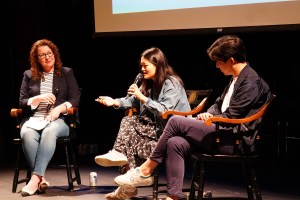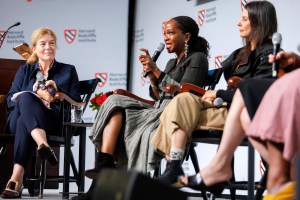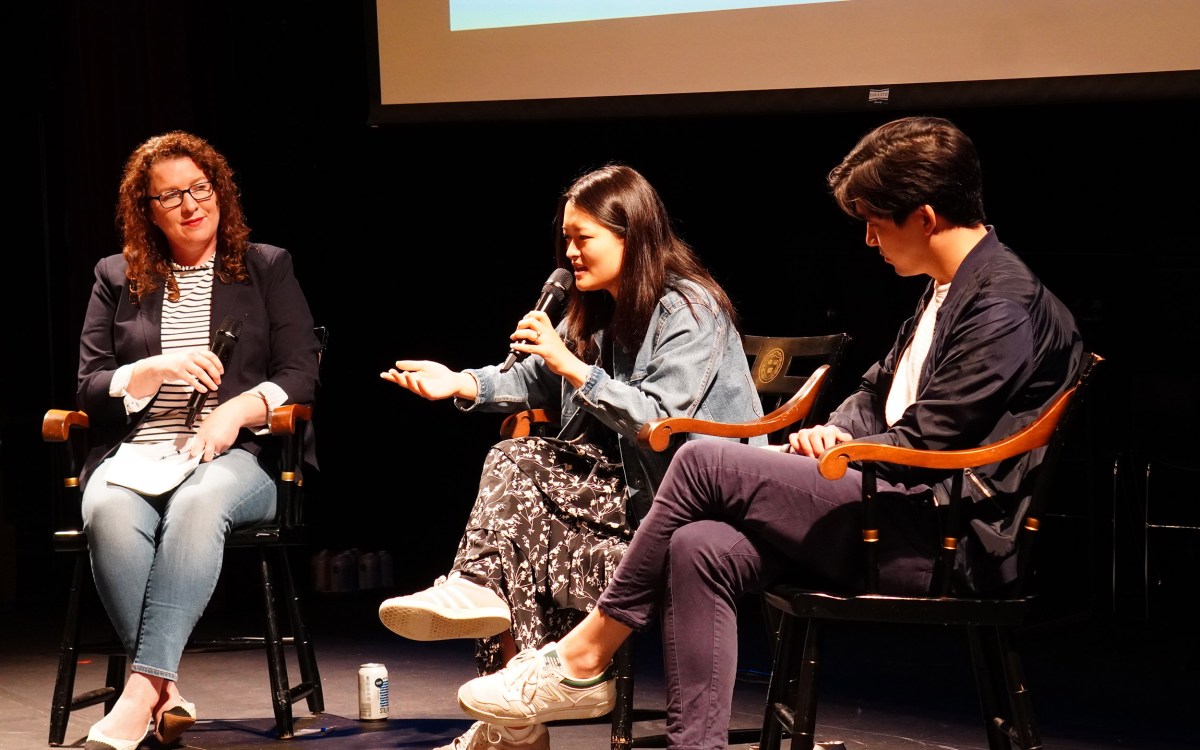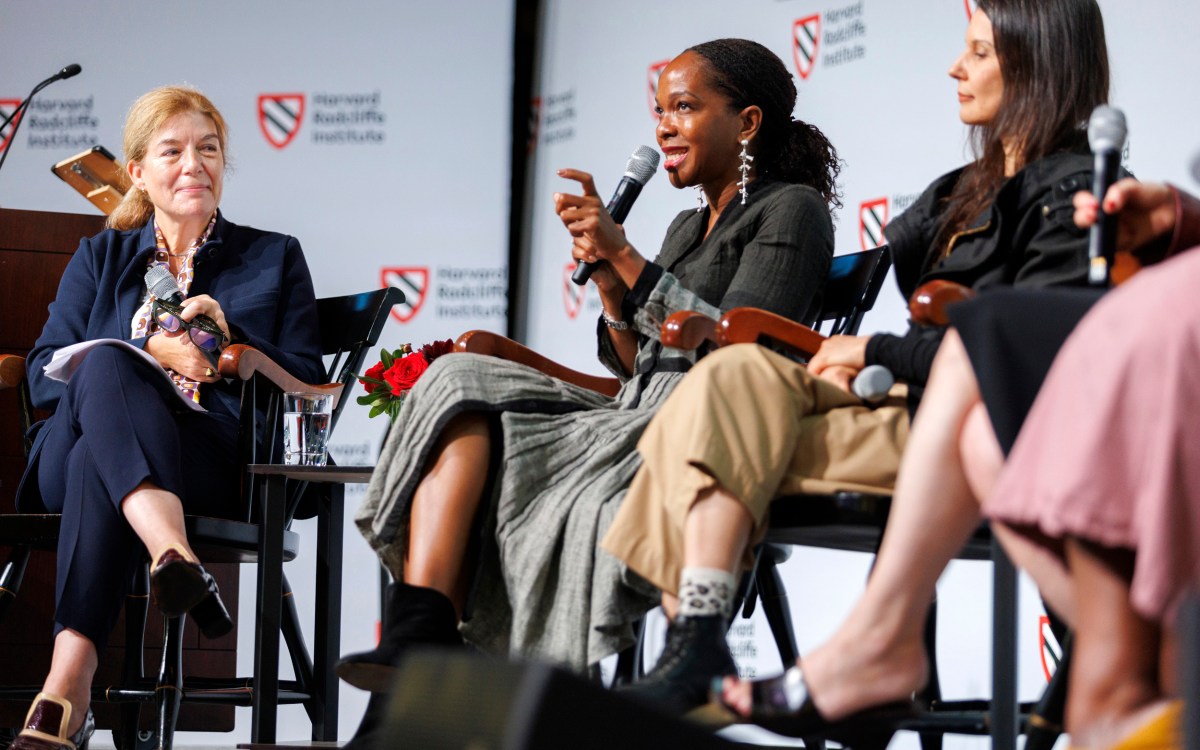Yu Hua reads work, participates in star-studded panel at Fairbank event
It’s strange to imagine your dentist as one of the most interesting and controversial novelists of the 21st century. But that’s just what Yu Hua is. Or was — the former dentist who admitted, more frighteningly, that he possessed little formal dental training, recently derided his former profession to a New York Times reporter, saying, “The inside of a mouth is one of the ugliest spectacles in the world.”
Ironic, then, that Yu chose to be a writer and not, say, a gardener; to craft a novel that revolves around Mao’s destructive Cultural Revolution and its aftermath; to cast characters of, at times, immoral, grotesque resolve; and to set them against the backdrop of an urgent and chaotic modern-day China. Compared to the inside of a mouth, Yu’s new world seems, by far, uglier.
But that’s just skimming the surface of his most recent book, “Brothers” — a satire, comedy, and a tragedy of sorts all rolled into one. The clean-cut, youthful-looking Yu read aloud from “Brothers” on March 12 at a Fairbank Center seminar that joined pre-eminent Asian-American authors Gish Jen and Ha Jin with Eileen Cheng-yin Chow, one of the book’s translators and associate professor in Harvard’s East Asian Languages and Literatures Department, and her translating “partner in crime,” Carlos Rojas.
Having sold more than 1 million copies in Yu’s native China alone, “Brothers” has been met with what Ha Jin called “mixed reviews.” To put it mildly. The novel has been hailed as everything from trash to fantastic, but these extremes are nothing new to Yu; one might even say he thrives off them. His earlier works are similarly fraught with pandemonium, what Chow describes as “experimental and brutally violent fiction.”
But inside the Northwest Building, a passerby might never guess that the soft-spoken Yu or the innocuously titled “Brothers” was an uproarious cause célèbre. However, to the mostly Chinese audience, Yu is clearly a celebrity. Cameras dangled from many of the lecture-goers’ wrists, all clamoring to capture a photo with the famed Yu. Most had read his novel, either in Chow’s class or on their own as a result of its surrounding publicity and immense intrigue.
The novel introduces Baldy Li, a character the reader meets as a child, and who serves as a vehicle for the dramatic transformations China will undergo during his lifetime. From meager beginnings, Baldy Li turns successful as a merchant of garbage — yes, garbage — but quickly expands into selling real estate, including his former village, and profiting from anything he can. Baldy’s stepbrother Song Gang, however, is a factory worker who loses his job and undertakes dire actions that include a breast augmentation — yes, implants — to get back on his feet. There is a love triangle. Sex and more sex. Poverty becomes excess; communism becomes capitalism. And, inevitably, lots of death. Not necessarily in that order. But the pillar of the novel is China’s extremist history, the old and the new — and one is no better than the other.
Speaking in soft Chinese, Yu appeared nervous, saying, “We don’t do this in China,” before reading a very short passage, which Chow then read in English.
Ha Jin took to the microphone after the reading, praising the novel for its humor, “strong autonomy,” and “self-sufficiency”; the last two traits, Jin believes, will carry the book into the future. “The writing … can resist the erosion of time and history,” he said.
Though the critics have been equally scathing and admiring in their reviews, one major point of contention was the novel’s English translation. Author Gish Jen wondered if the book was “untranslatable because it’s inscrutably Chinese.” Translators Chow and Rojas endured much rigmarole to preserve the authenticity of Yu’s storytelling, including battling for the book’s usage of the all-encompassing, and troublesome, pronoun “we” — employed by Yu to accurately depict the mass experiences of citizens who suffered the shockwaves of the Cultural Revolution.
“The copy editor’s argument,” explained Rojas, “was that it ‘reads strange in English.’ But that’s the marker of [Chinese] voice … that’s precisely what we were trying to preserve.”
Another issue is that “Brothers” is thick with Chinese allusion, and some have argued for footnotes, a sort of field guide to Yu Hua. Frustrated with the “nitpicking,” as Yu deemed it, he disagreed: “Only fools need to understand every reference.”
Even with all the hype, “Brothers” is Yu’s favorite work to date. Acknowledging his “pathological desire” to tell this story, the widespread bullying the book has endured has only endeared it more to Yu.
“Let’s face it, in 50 years this book will be read,” said Ha Jin, citing Yu’s uncanny rendering of the human condition as reason alone for the novel’s longevity.
Still, most are surprised the book passed China’s unpredictable censorship tests, as Yu refused to edit even one word. “No one should claim they can understand our government,” he joked. In the wake of the Chinese Olympics fiasco, Yu is quick to admit China has reached yet another extreme, but, considering everything his country has been through, he still remains hopeful for the future.
“Living is not about charging forward,” said Yu, “but … endurance.”
Not a bad mantra for the dentist-turned-writer whose life reads like one of his character’s. Yu’s parents were doctors and their home was used as the clinic. As a boy, he napped in the shade of the morgue across the street from his home.
Though no longer a dentist, Yu said that in China the novelist is sometimes regarded as a sort of doctor — one who examines, one who heals. “But in today’s world,” he pointed out, “we no longer have doctors. We are all patients.”



